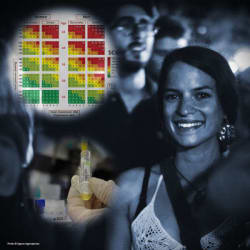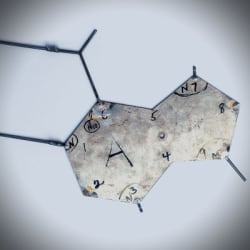Images
Water management today is faced with new challenges such as climate change or the effects of human activity. Public and private stakeholders who are active in this field must develop new ways to better manage the water cycle “as a whole”. The objective of this MOOC is to develop an understanding of the problems related to water management. Firstly, this course will define a resource and, more specifically, the resource of water. It will look at how water is used and the activities associated with it as well as any potential conflicts. The course will look at water management in detail through the analysis of the different types of rights and obligations associated with, for example, the development of a multi-sectorial regulation system or a watershed management approach. By the end of this course, our aim is to enable you to: 1) Identify the main issues and strategies linked to water resource management 2) Acquire the key reading material needed to understand the many variables (environmental, institutional and political) which affect water and which, in terms of management, may require adjustment. This course was developed by the Geneva Water Hub and is financed by the Swiss Agency for Development and Cooperation (SDC). Alongside researchers from the University of Geneva from a range of faculties, researchers from other universities and research centres will be involved in this course. Practitioners who deal daily with the political dimension of water management will also input into the course. This MOOC is designed for all those interested in the water sector. Prior training is not necessary to follow our program. The findings presented in this course can be easily reapplied to different contexts and to different scales of analysis. This course is also available in French : https://www.coursera.org/learn/gestion-eau/
Similar resources
Founded in 1559, the University of Geneva enjoys worldwide recognition and ranks amongst the top 100 best universities in the world. A polyvalent institution, it fosters the emergence of inter- and multidisciplinary fields in both research and teaching. It constantly strengthens its links with international Geneva, whilst contributing to the cultural, social and economic development of the region, notably through the promotion of research and its expertise in a wide range of fields.
UNIGE offers more than 500 programmes (including 136 Bachelor’s and Master’s degree programmes, 87 doctoral programmes) and 343 continuing education programmes covering an extremely wide variety of fields: exact sciences, medicine, humanities, social sciences, law, etc.
Its domains of excellence in research include life sciences (molecular biology, bio-informatics), physics of elementary particles, and astrophysics. UNIGE is also host and co-host to seven National Centres of Competence in Research: Frontiers in Genetics, MaNEP, PlanetS, SwissMap, Chemical Biology, Synaptic Bases of Mental Diseases and LIVES-Overcoming vulnerabilities in a life course perspective.
Just like the city of Geneva itself, the University enjoys a strong international reputation, both for the quality of its research (it ranks among the top institutions among the League of European Research Universities) and the excellence of its education. This acclaim has been won in part due to its strong ties to many national and international Geneva-based organizations, such as the World Health Organization, the International Telecommunications Union, the International Committee of the Red Cross, and the European Organization for Nuclear Research.


Planning your Wealth over a 5 year Horizon

Meeting Investors' Goals

To Screen or not to Screen? Methods and health policies through case studies

Make Smart Investment Decisions in a Global World

Securing Investment Returns in the Long Run








